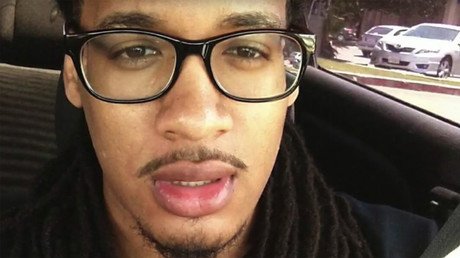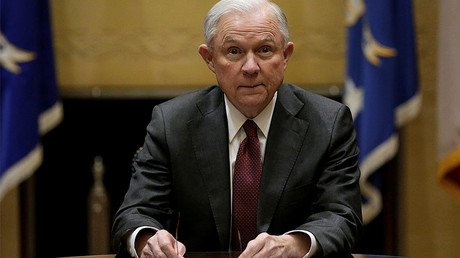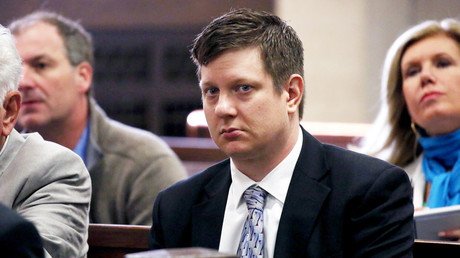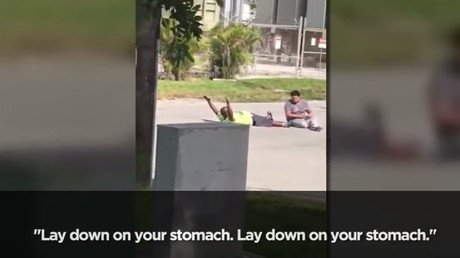US Supreme Court rejects police-force case, justifies cop immunity
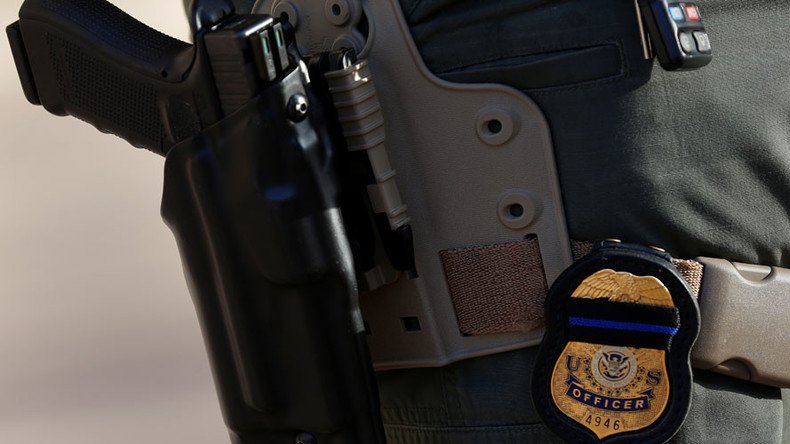
The US Supreme Court will not review a case in which lower courts had decided that a Texas cop’s version of events – involving the officer shooting an unarmed man in the back – are “undisputed facts” that effectively block a jury trial.
The case, Ricardo Salazar-Limon v. City of Houston, hinges on Houston police officer Chris Thompson’s version of events regarding a 2010 traffic stop during which Thompson shot an unarmed Ricardo Salazar-Limon in the back, leaving him partially paralyzed. The officer said he feared for his life when he shot Salazar-Limon. Salazar-Limon sued, seeking a jury trial to decide the validity of Thompson’s claims.
At issue is whether a court could accept the officer’s version of events as “undisputed fact” and grant summary judgment to Thompson, effectively avoiding a full trial on Salazar-Limon’s excessive force claims.
"The police officer didn’t have the right to do this," Salazar-Limon told the Houston Chronicle in 2013. "I didn’t abuse him. I didn’t insult him. I didn’t try to hit him or do anything against him for him to use that kind of force."
Justice Sonia Sotomayor dissented over the Supreme Court's decision to let stand a lower court's dismissal of the suit. She wrote in a dissent supported by Justice Ruth Bader Ginsburg that the court's refusal of the case continues a "disturbing trend" of protecting cops from lawsuits and bad behavior.
"The question whether the officer used excessive force in shooting Salazar-Limon thus turns in large part on which man is telling the truth," Sotomayor wrote. "Our legal system entrusts this decision to a jury."
Given the officer and the suspect disagreed on so much of the encounter, the Supreme Court should have reinstated the case, Sotomayor said, according to Reuters.
"The most natural inference to be drawn from Salazar-Limon's testimony was that he neither turned nor reached for his waistband before he was shot - especially as no gun was ever recovered," Sotomayor wrote.
In June 2016, an appeals court sided with a previous ruling by a trial judge, who dismissed the lawsuit based on a perceived threat to the officer, entitling Thompson to immunity.
On October 29, 2010, Salazar-Limon was pulled over by Thompson on a Houston-area freeway for speeding. Upon approaching Salazar-Limon's truck, Thompson has said he detected alcohol on Salazar-Limon's breath and then asked the driver to exit the vehicle.
In Thompson's version of events, Salazar-Limon became confrontational outside of the vehicle and attempted to push the officer into moving traffic, then into a freeway guardrail. As he walked toward his truck and away from Thompson, Salazar-Limon reached for his waistband, the officer has said, leading Thompson to fire his gun into the back of Salazar-Limon. No weapon was found on Salazar-Limon, who was left paralyzed from the waist down from the bullet.
Much of the encounter is in dispute, including the alleged struggle between Salazar-Limon and Thompson and Salazar-Limon's alleged movement to his waistband.
Protesters in Baton Rouge police killing claim history of 'racist law enforcement' – lawsuit https://t.co/AECgAkfNmTpic.twitter.com/uhj09qKQ6G
— RT America (@RT_America) March 24, 2017
Salazar-Limon has said that while outside of the vehicle, Thompson told him he was going to jail and attempted to handcuff him without offering a reason, amounting to an unlawful arrest. Thompson's defense has said it is "undisputed" that this action was only intended to be a "temporary detention."
When Thompson tried to handcuff Salazar-Limon, without telling him to turn around or put his hands behind his back, Salazar-Limon pulled his hands away. Thompson says it is also "undisputed" that, at this point, Salazar-Limon became violent and struggled with the officer. The officer has claimed"Salazar attempted to push Thompson into the lanes of traffic," and that "[t]he struggle eventually moved away from the lanes of traffic and ended up near the retaining wall where Thompson felt that Salazar was attempting to push him over the wall."
Thompson's defense has also stated that it is "undisputed fact" that Salazar-Limon reached into his waistband as he walked away from the officer. Thompson told him to "stop," then quickly fired into Salazar-Limon's back.
Salazar-Limon says this struggle did not occur, and that he only pulled his hands away from Thompson over the threat of going to jail for no stated reason.
The bottom line is Salazar-Limon, who had no criminal history, has disputed much about the confrontation, but the US court system has dismissed the excessive force lawsuit by siding with the officer's claim that his own version of events is undisputed.
"In sum, it is not 'undisputed' that Salazar reached for his waistband just because Thompson said he did," Salazar-Limon's attorneys have said. "There are only two people in the world who know what happened on the side of the highway that night, and those two people need to take the stand and tell their versions of the facts to the jury. The Seventh Amendment requires it."
Salazar-Limon was originally charged with two misdemeanors of driving while intoxicated and resisting arrest. He pleaded no contest to both charges. A grand jury declined to bring charges against Thompson in April 2011.
